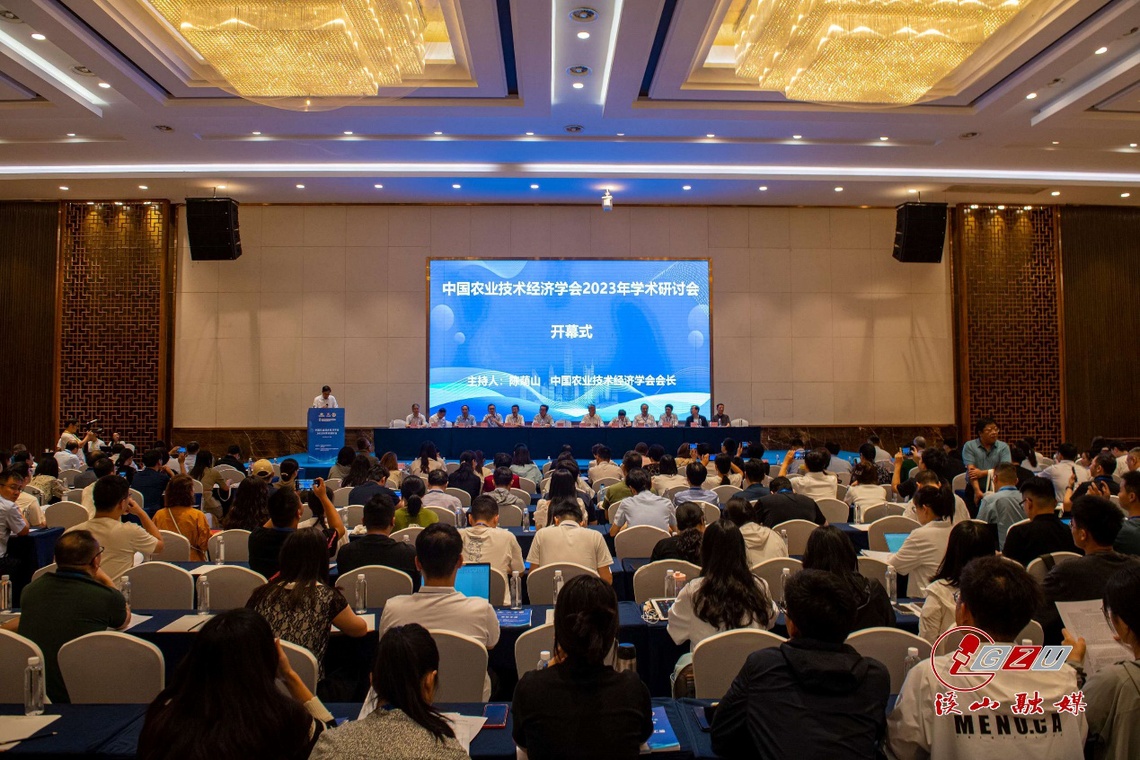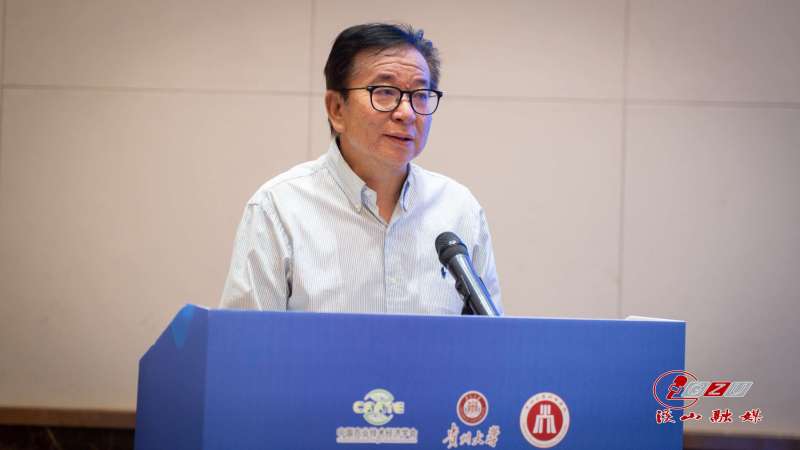

On September 17th, the 2023 Academic Symposium of the Chinese Association of Agricultural Economics (“the Association” for short) convened in Guiyang. Themed “Institutional Innovation and the Construction of an Agricultural Powerhouse”, this conference was jointly organized by the Association and Guizhou University (GZU), with co-hosting support from the Agricultural Economics and Development under Institute of the Chinese Academy of Agricultural Sciences and the College of Economics at Guizhou University. The symposium delved into the imperative course of action for advancing the development of an agricultural powerhouse through technology and reforms. |

Chen Mengshan, the President of the Chinese Association of Agricultural Economics, chaired the conference and delivered the inaugural speech. Chen highlighted the pivotal role of robust agriculture in fortifying China's overall strength. He underlined the significance of agriculture as the cornerstone industry that guarantees stability and public well-being. He noted the 20th National Congress of the Communist Party of China (CPC) report, which underscored the importance of accelerating the construction of an agricultural powerhouse. This report offered a clear direction for modernizing agriculture and rural areas in the new era, along with the significant task of comprehensively advancing rural revitalization. The conference aimed to provide a focal point for discussions concerning China's agricultural and rural development issues, the promotion of institutional innovation in agriculture, the establishment of an agricultural powerhouse, and the pursuit of innovation and prosperity within the Association.

In his address, Li Jianjun, Secretary of GZU Party Committee, introduced the historical background and fundamental characteristics of the University. He stressed that a robust nation is contingent upon a resilient agricultural foundation and referenced the comprehensive plans for agriculture and rural work outlined in the 20th CPC National Congress. He acknowledged that the University has given full play to its educational, human resources, and technological strengths to support Guizhou's rural revitalization. Notably, the university has established 12 teams dedicated to Guizhou's 12 designated agriculture characteristic industries, thereby contributing significantly to the province's agricultural advancement. Li hoped that the symposium would offer valuable support and assistancefor the developmentof agricultural economics and allied disciplines at GZU.
The symposium was conducted primarily through thematic group discussions, encompassing diverse topics such as food security and the stable production of crucial agricultural commodities, land system innovation and agricultural powerhouse development, technological innovation and agricultural powerhouse construction, the digital economy's role in agricultural powerhouse development, green development and agricultural powerhouse building, and the theory and practice of modern village governance. These discussions sought to chart a course for modern agricultural and rural development tailored to Chinese characteristics, reconciling production, prosperity, and ecological considerations. The aim of the event was to provide theoretical underpinnings for the comprehensive revitalization of rural areas and the expedited creation of an agricultural powerhouse.
Editor: Pang Aizhong
Chief Editor: Li Xufeng
Senior Editor: Yan Nan
Translator: Xiao Qi
